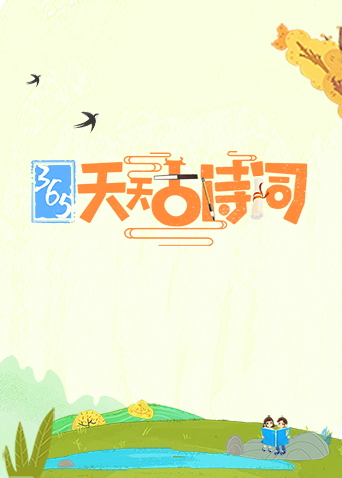可可(卓娜)掐死孪生妹妹后被父母送进了精神病院,久久在这个“特殊”的地方,久久用一身黑乌鸦毛扮天使的她结识了卷毛(浅野忠信)和小悟(桥爪浩一),三人成为好友。卷毛因失手杀死了屡次侵犯他的变态老师被送到这里,噩梦自此伴随,小悟则是脱离现实的妄想狂。某天可可和卷毛沿着医院的围墙走到了外面的世界,教堂里的圣歌声令他们停下脚步,得到一本由一位好心牧师所送的《圣经》后,卷毛认定世界末日即将来临,而可可觉得自己死亡的时刻才代表真正的世界末日。其后,三人再次爬上医院的围墙,结伴去等世界末日的降临。

可可(卓娜)掐死孪生妹妹后被父母送进了精神病院,久久在这个“特殊”的地方,久久用一身黑乌鸦毛扮天使的她结识了卷毛(浅野忠信)和小悟(桥爪浩一),三人成为好友。卷毛因失手杀死了屡次侵犯他的变态老师被送到这里,噩梦自此伴随,小悟则是脱离现实的妄想狂。某天可可和卷毛沿着医院的围墙走到了外面的世界,教堂里的圣歌声令他们停下脚步,得到一本由一位好心牧师所送的《圣经》后,卷毛认定世界末日即将来临,而可可觉得自己死亡的时刻才代表真正的世界末日。其后,三人再次爬上医院的围墙,结伴去等世界末日的降临。

回复 :1927年初,在欢庆北伐胜利的喜庆日子里,董必武来到汉口,寄居在好友——法院院长唐云阶家中。面对蒋介石的反共方针,董必武邀请进步人士商讨反击日益嚣张的农村反动势力的对策,共同拟定了“惩治土豪劣绅暂行条例”,并组织征粮队下乡,由黄安七紫乡农协主席郑虎担任队长。唐云阶的女儿楚梅和她的中学同学们也都参加了征粮队。没过几天,郑虎突遭逮捕,报纸指控他杀人放火烧粮,并声称“幕后有人”,矛头直指董必武。汪精卫与唐云阶的亲家、国民党湖北省党部常委孔继石狼狈为奸,胁迫唐云阶出任“郑虎一案”的审判长。为了营救郑虎,冯正浩大律师受共产党委派决定出庭为郑虎辩护。某日,已晋升为汪精卫侍卫队长的孔少戎邀未婚妻楚梅出游,以虚情假意骗得楚梅的信任。楚梅竟将她目睹孔少戎的祖父孔龟年放火烧粮仓,并杀死老更夫而嫁祸于郑虎的真情和盘托出。次日,冯大律师死于侍卫队的汽车轮下,血的事实和董必武的开导教育了楚梅。“四一二”后,蒋介石亲自指使孔继石拿郑虎开刀。孔继石领命后加紧活动,收买检察官,让儿子孔少戎诱使楚梅离开,命特务盯住董必武,然后逼唐云阶提前开庭,企图在被告无律师和证人的情况下,判处郑虎死刑。经过一番复杂的斗争,董必武带着楚梅突然出现在法庭上,他们有力的辩护和作证,终使冤案真相大白。郑虎获救了,孔龟年却罪责难逃。气急败坏的孔继石连忙授意儿子暗杀董必武。当孔少戎将罪恶的子弹射向董必武时,楚梅用自己年轻的身体护卫了敬爱的董伯伯。迎着楚天风云,董必武告别老友,投入了“宁汉合流”后的武装斗争。
回复 :Somewhere in the remote region, the war ends. In the midst of ruined cities and houses in the streets, in rural hamlets, everywhere where people still live, are children who have lost their homes and parents. Abandoned, hungry, and in rags, defenseless and humiliated, they wander through the world. Hunger drives them. Little streams of orphans merge into a river which rushes forward and submerges everything in its path. The children do not know any feeling; they know only the world of their enemies. They fight, steal, struggle for a mouthful of food, and violence is merely a means to get it. A gang led by Cahoun finds a refuge in an abandoned castle and encounters an old composer who has voluntarily retired into solitude from a world of hatred, treason, and crime. How can they find a common ground, how can they become mutual friends? The castle becomes their hiding place but possibly it will also be their first home which they may organize and must defend. But even for this, the price will be very high.To this simple story, the journalist, writer, poet, scriptwriter, movie director, and film theoretician Béla Balázs applied many years of experience. He and the director Géza Radványi created a work which opened a new postwar chapter in Hungarian film. Surprisingly, this film has not lost any of its impact over the years, especially on a profound philosophical level. That is to say, it is not merely a movie about war; it is not important in what location and in what period of time it takes place. It is a story outside of time about the joyless fate of children who pay dearly for the cruel war games of adults.At the time it was premiered, the movie was enthusiastically received by the critics. The main roles were taken by streetwise boys of a children's group who created their roles improvisationally in close contact with a few professional actors, and in the children's acting their own fresh experience of war's turmoil appears to be reflected. At the same time, their performance fits admirably into the mosaic of a very complex movie language. Balázs's influence revealed itself, above all, in the introductory sequences: an air raid on an amusement park, seen in a montage of dramatic situations evoking the last spasms of war, where, undoubtedly, we discern the influence of classical Soviet cinematography. Shooting, the boy's escape, the locomotive's wheels, the shadows of soldiers with submachine guns, the sound of a whistle—the images are linked together in abrupt sequences in which varying shots and expressive sharp sounds are emphasized. A perfectly planned screenplay avoided all elements of sentimentality, time-worn stereotypes of wronged children, romanticism and cheap simplification. The authors succeeded in bridging the perilous dramatic abyss of the metamorphosis of a children's community. Their telling of the story (the scene of pillaging, the assault on the castle, etc) independently introduced some neorealist elements which, at that time, were being propagated in Italy by De Sica, Rossellini, and other film artists. The rebukes of contemporary critics, who called attention to "formalism for its own sake" have been forgotten. The masterly art of cameraman Barnabás Hegyi gives vitality to the poetic images. His angle shots of the children, his composition of scenes in the castle interior, are a living document of the times, and underline the atmosphere and the characters of the protagonists. The success of the picture was also enhanced by the musical art of composer Dénes Buday who, in tense situations, inserted the theme of the Marseilaise into the movie's structure, as a motive of community unification, as an expression of friendship and the possibility of understanding.Valahol Europaban is the first significant postwar Hungarian film. It originated in a relaxed atmosphere, replete with joy and euphoria, and it includes these elements in order to demonstrate the strength of humanism, tolerance, and friendship. It represents a general condemnation of war anywhere in the world, in any form.
回复 :影片讲述三个大学毕业不久的年轻人一起创立了一家影视公司。公司孤注一掷地拍摄了一部古装武侠电影,却在杀青日当晚弄丢了素材硬盘。制片人、导演、摄影师不得不在七天内重新拍摄一部电影交给投资方。为了完成这个“不可能的任务”, 三人绞尽脑汁、火线补拍,由此引发了一系列令人啼笑皆非的拍摄趣事。

